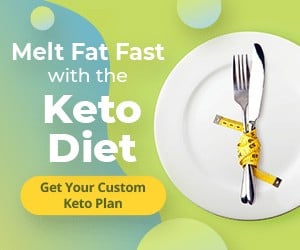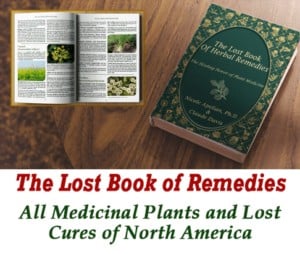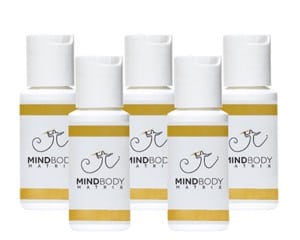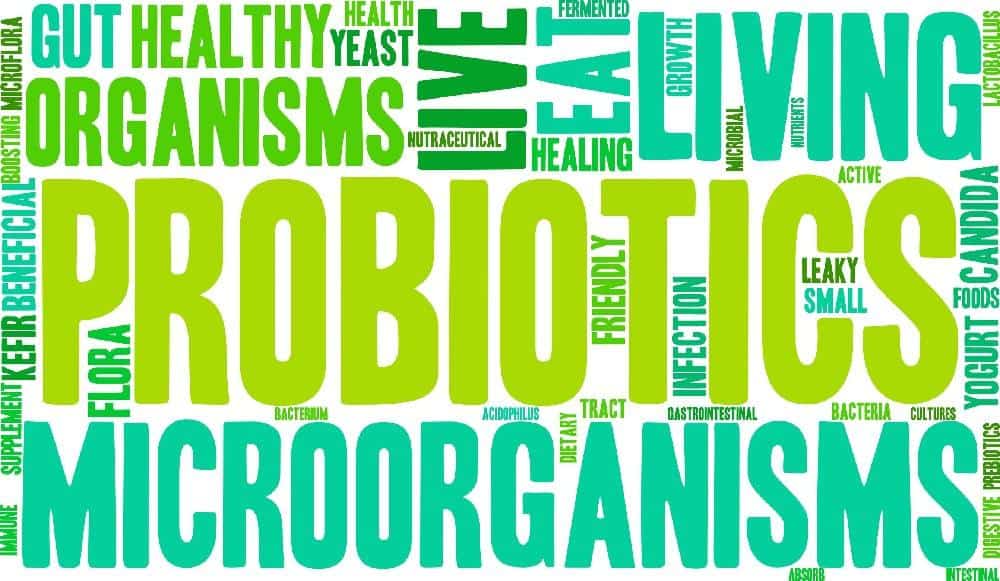
Probiotics. It’s a word that has crept into our discussions about food and health. It seems as if every other food advertiser is proudly claiming that their product contains probiotics.
But what are probiotics? Are some kinds better than others? Where can you get them from? What do they do for you? Are there some people who should avoid them?
These and many other questions will be answered here.
What Are Probiotics?
Probiotics are microscopic living creatures, yeasts, and bacteria, which exist all around us including inside our bodies.
In fact, it has been estimated that as much as 3% of the average person’s weight consists of the little bugs that happily live in our system – especially in our digestive system.
So if you weigh 120 pounds, around three and a half-pound of you probably consists of your little invisible friends!
There are an estimated hundred trillion of them in your gut, and more than five hundred different kinds.
Everybody has a unique assortment of flora (plants) and fauna (animals) living quietly inside them, mainly in a mutually beneficial arrangement.
Some of these little creatures are not our friends – viruses, bacteria, and so on (And these days we know more about viruses than we ever wanted to!).
But most of the bacteria in our bodies are probiotics – and these are very good for us. The good guys work to push out the bad, so it’s important to keep a healthy balance in our system.
What Kinds Of Probiotics Are There?
You’ll come across a lot of fancy names, but these are the most common kinds of bacteria found probiotics:
Lactobacillus: As the name suggests, this is found in milk and also in fermented foods like yogurt, cheese (yes, cheese is a fermented food), and kefir.
The presence of this bacteria might help people digest milk who otherwise find it difficult. It’s useful for treating diarrhea.
Saccharomyces boulardii is found in probiotics, and it’s a yeast. It’s helpful for diarrhea and other digestive issues.
Bifidobacterium is also found in dairy products, and it’s thought that it can help with irritable bowel syndrome. These are very often added to foods or used as a supplement.
What Do Probiotics Do?
Probiotics are found principally in the digestive tract, and this is where they go to work. They act on the nerves in the digestive system that act to control the movement of the gut.
Good gut movement is vital for the correct digestion of food as it passes through the human system.
Probiotics help us deal with those irritating occasional issues such as gas, bloating, constipation, diarrhea, heartburn, even minor skin and vaginal problems.
They help keep our body in good running order in the most natural way possible.
A diet rich in probiotics generally helps ward off those annoying sugar cravings and can boost your metabolism and sense of energy and wellbeing.
Although there is a great deal that scientists still want to learn about how probiotics work to promote human health, they are known to be effective in:
- The control of the distressing effects of Irritable Bowel Syndrome
- The control of the symptoms of Inflammatory Bowel Disease
- The relief of infectious diarrhea and diarrhea caused by the use of antibiotics
Some people have also reported that probiotics have helped them with:
- Urinary and vaginal infections
- Conditions of the skin such as eczema
- Mouth and gum health
- The prevention of colds, flu, and the symptoms of allergies
These last are not medically proved, but probiotics do seem promising potential treatments.
Where Do Probiotics Come From?
Probiotics come, in the main, from foods with natural probiotics that we eat.
They can be naturally occurring, for example, in yogurt, they can be added to foods that already contain them, giving them a boost, for example, to milk, or they can be taken in the form of a dietary supplement.
Although we all have probiotics in our systems, the levels can get low at times, for example, if we are stressed, are taking drugs such as antibiotics, or have a digestive upset.
At these times, we can turn to foods and supplements to boost our own flora and fauna.
The Main Sources Of Probiotics
Although we can get probiotics from supplements, foods with natural probiotics are the very best source.
This is because even with the advanced science that we have available to us, we still don’t fully understand the complexity of probiotics.
For example, some years ago human breast milk was being analyzed to create an excellent substitute milk for babies where mothers were unable to breast feed.
There was a substance in the milk that scientists could not find a function for in direct human nutrition, so it wasn’t replicated.
As time went on, and the replacement milk was refined, it was found that the discarded substance was actually needed to encourage the growth of probiotics in the baby’s gut.
This illustrates the fact that when we eat whole foods, we are eating the entire nutritional structure that is created for our wellbeing.
There are almost certainly complex things going on in nutrition that we still don’t fully understand.
So while we can use supplements, and foods that have had probiotics added to them, foods with natural probiotics are definitely our first port of call when it comes to adding probiotics to our diet.
On the other hand, supplements can be extremely useful to give a quick boost to a person who is not able to eat a regular diet.
Foods With Natural Probiotics
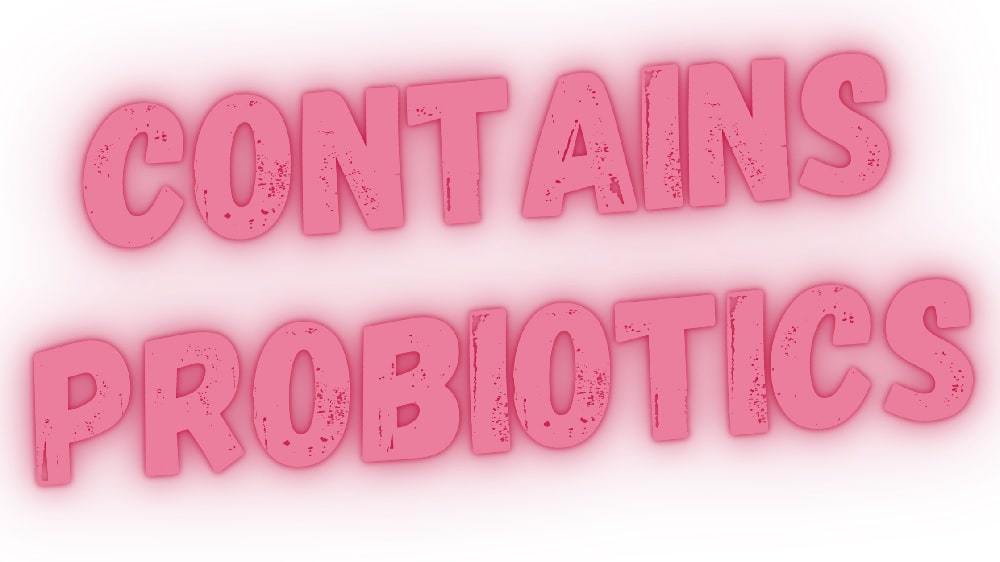
Fortunately, there are many delicious and healthy foods with natural probiotics that are readily available for us to enjoy.
These include:
- Yogurt
- Kefir
- Kimchi
- Kombucha
- Cheese
- Fermented vegetables such as sauerkraut and some pickles
- Miso
- Sourdough Bread
- Some fruits, such as bananas and custard apples
A word of warning though, if a product is produced commercially by a big food company, especially things like cheese and yogurt it may be subject to heat treatments that destroy bacteria, both good and bad.
These kinds of products may in fact be very low in natural probiotics. Foods with added probiotics may not be as nutritionally superior as they are making out – the label is your friend!
If you can, find local suppliers on farmers’ markets and in specialty shops who are making food from natural, lightly processed ingredients to make sure that you are getting the nutritional benefits that you want.
If you want to know what are my favorite foods with natural probiotics check out my article on foods that boost immune system naturally.
Probiotic Supplements
As I mentioned, supplements can be a very good source of probiotics as they are able to deliver them in very large quantities, very fast, meaning that your body can quickly build up a natural colony of these good bacteria.
The best time to take any supplement is at night because the body gets time to work on the good things you have given it in peace!
Many supplements offer a number of strains in one product, and this is useful to build and sustain gut health.
Live cultures are available, but satisfy yourself that they have been stored correctly all along the supply chain and that they are within their use-by date.
These supplements are not regulated by the FDA, so always buy from a reputable source to ensure that you are getting what you expect.
Are Probiotics Vegan?
Obviously, dairy products are not vegan, but it’s perfectly possible to obtain probiotics from fermented vegetables, sourdough bread, and of course, there are also vegan supplements.
If you are a vegan, you are very used to reading the small print on product labels. In the case of probiotics, just take extra care, as many supplements derive from lactose – milk sugar.
Can Probiotics Be Dangerous?
If you are actually suffering from an illness or disorder, it makes every kind of sense to consult your doctor before making major changes to your diet.
However, many conventional doctors are not fully familiar with the benefits of probiotics, so you might also like to consult your alternative medicine practitioner or a good nutritionist.
People with immune system issues, who are very seriously ill or who have undergone major surgery probably should avoid taking probiotics without first getting medical advice.
For most people, probiotics are perfectly safe, causing at worst a mild stomach upset if they disagree with you at first.
Why Take Probiotics With Antibiotics?
There is no doubt that antibiotics are a great blessing to us, used in moderation. Unfortunately, while they are knocking out the bad bacteria, they can also take with them the good.
In this case, you need to boost your system by taking in plenty of probiotics. These should be in food, and also in the form of supplements to build up your own probiotic levels quickly.
Even if you took antibiotics some time ago, your natural probiotics may be depleted, leading to a feeling of just not being a hundred percent well.
And if you want to learn how to make your own natural antibiotic at home, check out this article where I share some good information and my mom’s secret natural antibiotic recipe (free download).
Making Probiotics Part Of Your Daily Diet
If you are taking probiotics in the form of a supplement, then simply follow the directions on the box.
If you are making the effort to include probiotics in your diet in the form of naturally occurring probiotics in food, then simply make them a part of your everyday eating.
You can’t really take too much in the form of food – if your bodies can’t utilize the probiotics, it will just eliminate them in the normal way.
It’s a good rule of thumb to try to eat probiotic-containing foods every day.
A natural yogurt for breakfast, cheese and pickle on sourdough bread for lunch followed by a banana, and a side of kimchi with dinner would make for a good variety of probiotic intake.
Foods with natural probiotics also tend to be full of excellent vitamins and minerals too, so you can give your health a natural boost in every way by paying attention to having a good probiotic intake.
Getting your probiotics on will soon become second nature!
Related Posts:
Why Gut Health Is Important and How It Affects Your Body
18 Foods That Boost Immune System Naturally
Natural Antibiotics in Food – Most Effective Herbal and Natural Remedies
Natural Sugar vs Added Sugar: Which Sugar Is Best For You?
5 Best Herbs for Digestion: How to Improve Digestion Naturally

